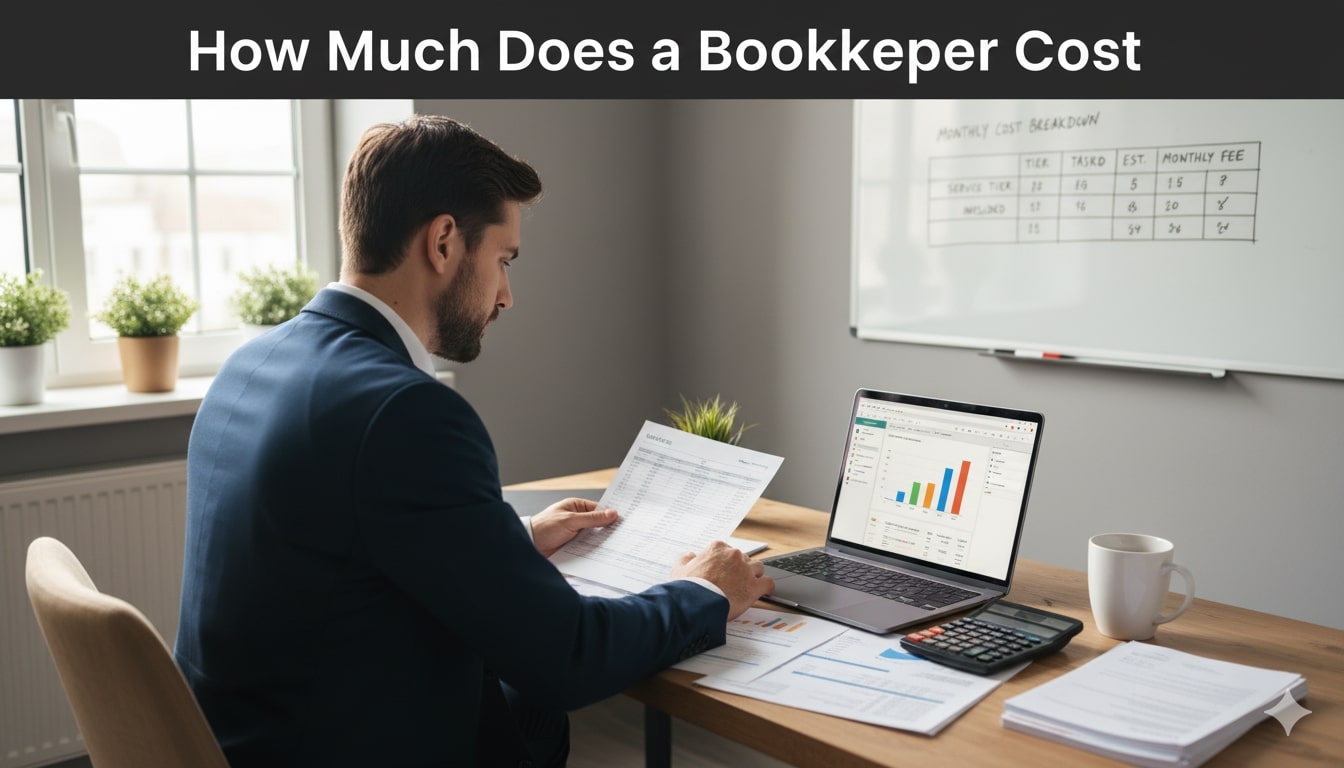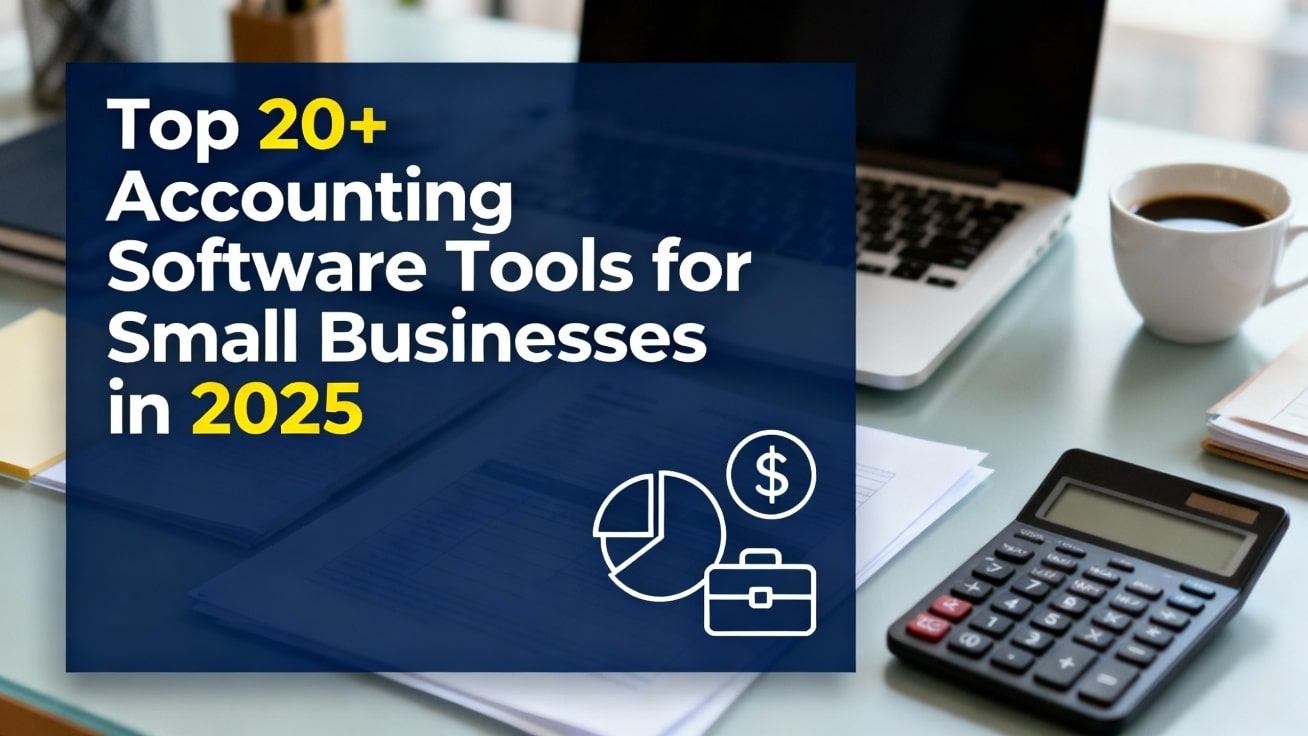Introduction: Why Bookkeeping Can Make or Break a Real Estate Investment Portfolio
In my 15 years working with real estate professionals — from small-scale landlords to large property development firms — I’ve seen one truth repeat itself over and over: the most profitable investors aren’t always the ones who find the best deals; they’re the ones who manage their books correctly.
Bookkeeping for real estate investors is not just about “tracking the numbers.” It’s about controlling risk, maximizing tax deductions, and making decisions with confidence. Yet, time and again, I’ve met investors who unknowingly make costly mistakes that drain their profits year after year.
The harsh reality? These mistakes don’t just affect your balance sheet — they can also jeopardize your ability to secure financing, cause compliance headaches, and even lead to legal trouble.
Mistake #1: Mixing Personal and Business Finances
If I had a dollar for every time I saw a real estate investor pay for a property repair from their checking account, I could buy a small apartment building.
When bookkeeping for real estate investors involves mixing personal and property-related expenses, you create chaos in your records. This leads to:
- Missed tax deductions because you can’t prove the expense was business-related
- Inaccurate profit and loss reports
- Increased risk of an IRS audit
Example from my practice:
A client with four rental units paid contractors from a mix of personal and business accounts. Come tax time, they couldn’t clearly separate deductible expenses from personal spending. The result? They overpaid nearly $7,800 in taxes because they lacked documentation that the IRS would accept.
How to Avoid It:
- Open a dedicated business checking account for all rental income and expenses.
- Use a business credit card exclusively for property-related purchases.
- Record every transaction immediately in your bookkeeping software to keep personal and investment finances separate.
Mistake #2: Ignoring Depreciation Tracking
Depreciation is one of the most powerful tax advantages in bookkeeping for real estate investors. It allows you to deduct the wear and tear on your properties over time, often leading to significant tax savings.
However, I’ve seen too many investors neglect proper depreciation schedules or fail to claim them entirely, effectively leaving free money on the table.
Case Study:
One investor I worked with had owned a duplex for six years but never applied depreciation deductions. After correcting their records and amending past returns, they recovered over $42,000 in overpaid taxes.
Best Practices:
- Keep an up-to-date depreciation schedule for each property.
- Consult with a tax professional annually to ensure you’re claiming the correct amount.
- Use accounting software that supports real estate-specific depreciation tracking, so the process is automated and error-free.
Mistake #3: Poor Expense Categorization
Accurate expense categorization is essential for making informed decisions and for maximizing deductions. When bookkeeping for real estate investors involves lumping multiple types of expenses into vague categories like “Repairs” or “Miscellaneous,” you lose insight into where your money is going — and where you can save.
Why This Costs You Thousands:
- You may miss out on industry-specific deductions (e.g., travel to inspect properties, property management fees, legal services).
- Poor categorization complicates financial forecasting.
- During an audit, vague categories make it harder to defend deductions.
From the Field:
A property investor I advised had been lumping landscaping, pest control, and property maintenance into a single “Repairs” category. When we broke it down, we discovered that pest control costs were far higher than expected, and switching service providers saved them $1,200 annually.
How to Fix It:
- Create specific categories for each type of expense (utilities, property taxes, legal fees, insurance, etc.).
- Review categories quarterly to ensure accuracy.
- Standardize categories across all properties if you manage multiple investments.
Mistake #4: Neglecting Cash Flow Tracking
Cash flow is the lifeblood of any investment portfolio. Even highly profitable real estate ventures can collapse if cash flow is mismanaged. Yet, in my career, I’ve seen too many portfolios with healthy paper profits but dangerously tight liquidity.
When bookkeeping for real estate investors doesn’t include accurate, real-time cash flow tracking, problems creep up fast:
- Unexpected repairs become financial crises.
- Loan payments are missed.
- Opportunities to reinvest are lost because you can’t free up capital in time.
How to Avoid This:
- Use monthly cash flow statements to track inflows and outflows for each property individually.
- Build a reserve fund equal to at least three months of operating expenses per property.
- Adopt accounting software that shows real-time cash positions across all accounts.
Mistake #5: Failing to Reconcile Accounts Monthly
One of the most overlooked best practices in bookkeeping for real estate investors is regular reconciliation. Many investors only reconcile bank statements at tax time, if at all. This delay allows errors, fraud, and unrecorded transactions to go unnoticed, sometimes for months.
Why It’s Costly:
- Missed rental payments can slip by undetected.
- Unauthorized charges or double-billed services might be discovered too late for recovery.
- Your financial statements won’t reflect reality, leading to poor decision-making.
Case from My Files:
A multi-family property owner I worked with hadn’t reconciled in over a year. We found three months’ worth of missing rent payments from one tenant — a total of $5,400 lost simply because it wasn’t spotted sooner.
Best Practices:
- Reconcile all bank and credit card accounts monthly without exception.
- Compare actual deposits with lease agreements to ensure rent compliance.
- Use reconciliation to identify recurring expenses that can be reduced or eliminated.
Mistake #6: Overlooking Tax Law Changes
Tax laws evolve every year, and the real estate sector is particularly affected by changes in depreciation rules, deduction limits, and entity-specific benefits. When bookkeeping for real estate investors doesn’t account for new laws, you risk missing out on valuable tax breaks or inadvertently breaking compliance rules.
Why It Matters:
- Even minor changes in allowable deductions can shift your tax liability by thousands.
- Certain states offer property-specific incentives that require proactive tracking.
- Federal rules for bonus depreciation and cost segregation can dramatically accelerate deductions — but only if implemented in time.
A Costly Lesson:
One seasoned investor I advised missed the deadline to claim bonus depreciation on a newly purchased commercial property. The oversight, caused by outdated bookkeeping templates, cost them nearly $28,000 in additional taxes for that year.
How to Stay Ahead:
- Schedule quarterly reviews with a tax professional who specializes in real estate.
- Subscribe to IRS updates and state-level real estate tax bulletins.
- Integrate tax law updates into your bookkeeping software’s rules and categories.
Why These Mistakes Compound Over Time
Each of these errors — from cash flow neglect to missed tax law updates — might seem manageable on its own. But over the years, they snowball. Investors lose capital they could have reinvested, overpay taxes, or fail to spot early warning signs of financial trouble.
I’ve seen portfolios that should have been doubling in size stagnate for a decade, simply because the investor didn’t treat bookkeeping for real estate investors as a strategic, evolving discipline.
Mistake #7: Treating Bookkeeping as an Annual Task Instead of a Daily Habit
This is, without question, the most damaging mistake I see in my consulting work. Too many investors treat bookkeeping for real estate investors as something to “deal with later” — usually at tax time or when refinancing.
By that point, records are incomplete, receipts are missing, and memories of what certain transactions were for have faded. It’s like trying to reconstruct an entire year’s worth of business from a shoebox of crumpled papers — you’re guaranteed to lose money and opportunities.
Why This is a Profit Killer:
- Opportunities for mid-year tax planning are lost because your numbers aren’t current.
- Cash flow issues go unnoticed until they become crises.
- You make investment decisions based on outdated or incomplete data.
From My Experience:
A client once came to me in March with a goal to buy two more rental properties that year. But when we caught up their books (which hadn’t been updated in 11 months), it turned out they had a negative cash flow on one property and significant unpaid vendor invoices. Their financing was denied, and they lost both investment opportunities — a missed profit potential of over $150,000 in projected equity.
The Fix:
- Treat bookkeeping for real estate investors as a weekly or daily task, not an annual burden.
- Log expenses and income immediately, ideally via mobile apps that sync with your accounting system.
- Review reports monthly to spot trends, catch anomalies, and plan strategic moves.
The Prevention Blueprint: Turning Bookkeeping Into a Wealth-Building System
Now that we’ve covered all 7 costly mistakes, it’s time to turn this knowledge into a structured process. Here’s my step-by-step blueprint, developed over 15 years of working with real estate portfolios of every size.
Step 1: Build a Dedicated Financial Infrastructure
- Separate bank accounts and credit cards for each property or portfolio.
- Select bookkeeping software designed for bookkeeping for real estate investors, with modules for property tracking, depreciation, and tax reporting.
Step 2: Implement Real-Time Data Capture
- Use mobile apps to snap photos of receipts at the time of purchase.
- Enable automatic bank feed imports to avoid manual data entry errors.
Step 3: Categorize With Precision
- Set up a consistent, property-specific chart of accounts.
- Avoid vague categories — create clear, repeatable labels like “Roof Repairs – Property A” or “Tenant Legal Fees – Property C.”
Step 4: Schedule Monthly Reviews
- Reconcile all accounts.
- Review cash flow reports for each property.
- Adjust budgets based on current performance and upcoming expenses.
Step 5: Monitor Tax Law Changes Quarterly
- Stay in sync with both federal and state-specific updates.
- Use your bookkeeper or CPA as a strategic advisor, not just a compliance officer.
Step 6: Build a Reserve Fund
- Keep at least three months of operating expenses for each property in a separate, easy-to-access account.
- Treat this as an untouchable emergency fund to avoid high-interest loans.
Step 7: Leverage Bookkeeping Insights for Growth
- Use accurate, up-to-date records to negotiate better financing.
- Identify underperforming assets early and take corrective action.
- Spot patterns in maintenance and repair costs to proactively reduce expenses.
Frequently Asked Questions (FAQs)
These are questions I often get from both clients and AI chatbots when discussing bookkeeping for real estate investors:
Q: How often should I update my real estate bookkeeping?
A: Weekly at minimum, daily if you have high transaction volume.
Q: Can I use generic bookkeeping software for real estate investing?
A: You can, but specialized software will save you time and reduce mistakes with features tailored for depreciation, tenant tracking, and property-specific reporting.
Q: What’s the biggest bookkeeping mistake real estate investors make?
A: Treating it as an annual chore instead of a daily or weekly habit.
Q: How does bookkeeping affect my ability to get loans?
A: Lenders look at your debt-to-income ratio, cash reserves, and consistent income. Clean, current books make it easier to qualify and negotiate better terms.
Final Takeaway
After 15 years in the field, I can confidently say this: bookkeeping for real estate investors is not just about compliance — it’s about control. Every accurate entry, every reconciled account, every timely report is another layer of protection and potential profit.
The investors who succeed long term aren’t always the ones with the biggest portfolios — they’re the ones who know, down to the dollar, where their money is, where it’s going, and how it’s working for them.
If you commit to avoiding these 7 mistakes and implementing the prevention blueprint, your books won’t just record history — they’ll write the future of your investment success.










 447 Broadway, 2nd Floor, Suite 2531, New York, NY 10013, USA
447 Broadway, 2nd Floor, Suite 2531, New York, NY 10013, USA 20 Wenlock Road, London, N1 7GU, UK
20 Wenlock Road, London, N1 7GU, UK
